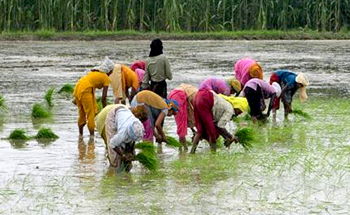New Delhi, Jul 4: The highest earning member in about three-fourths of all rural households in the country made less than Rs 5,000 per month, according to the Socio Economic and Caste Census (SECC) 2011 released on Friday.

There were only 1.48 crore or 8.29 percent of rural households where the monthly income of such member was Rs 10,000 or more.
Further, the number of rural households with a salaried job was only 9.68 percent.
Of these, 5.02 percent were in government jobs, 1.12 percent were employed in public sector and the remaining 3.58 percent in private sector, the data said.
The Census was carried out in all the 640 districts of the country using 6.4 lakh electronic hand-held devices, the government said while releasing the socio-economic data for rural India.
Of the total 24.39 crore households in the country, 17.91 crore are in rural India.
According to a government release, the Ministry of Rural Development has taken a decision to use the SECC data in all its programmes.
"SECC data would have meaningful use in housing for all, education and skills thrust, MGNREGA, National Food Security Act, interventions for differently-abled, interventions for women-led households, and targeting of households/individual entitlements on evidence of deprivation, etc," it added.
Also, the Ministry of Rural Development, in consultation with states, is trying to implement a convergent and integrated poverty reduction plan with Gram Panchayats and deprived households as priority, the release added.






Comments
Add new comment